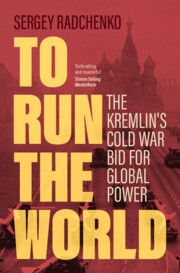13 - Detente
from Part III - Decline
Published online by Cambridge University Press: 30 May 2024
Summary
In the late 1960s, Brezhnev aimed to downplay the East–West ideological divide, prioritizing practical relationships over ideology. Worsening relations with China, demonstrated by the 1969 border clashes, heightened Moscow's fears of China. The prospect of an economic bonanza tempted the Soviets to reach out to France and West Germany in search of trade deals and access to markets. However, as this chapter shows, it was Nixon's visit to Beijing in February 1972 that awakened Brezhnev to the imperative of engaging with the United States. Despite America's ongoing war in Vietnam, he went out on a limb to host Nixon in Moscow. Brezhnev subsequently discovered that he and Nixon had much in common. He then strove to end the Cold War on terms that would approximate a Soviet–American condominium. This chapter argues, however, that the contradictions between the Soviet desire for American recognition and the Soviet quest for revolutionary legitimacy weakened the prospects for genuine superpower detente.
- Type
- Chapter
- Information
- To Run the WorldThe Kremlin's Cold War Bid for Global Power, pp. 359 - 391Publisher: Cambridge University PressPrint publication year: 2024

